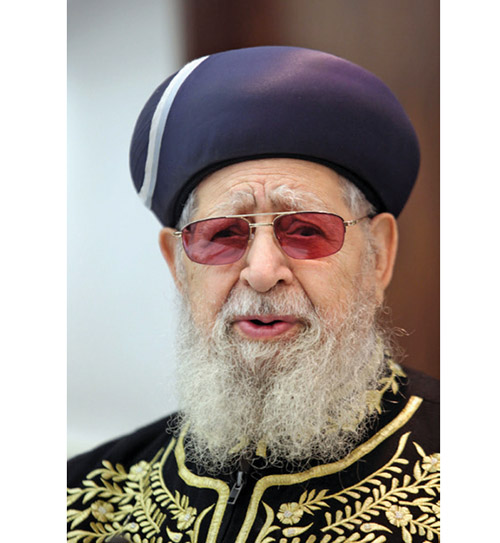
Reflections Upon the Renewal Shabbat in Bergen County
The Torah commands us: “Do not stand aside while your fellow’s blood is shed” (Vayikra 19:16). The Gemara (Sanhedrin 73a) clarifies that this pasuk obligates us to expend all efforts and financial resources to save the life of another human being. Rashi (ad. loc. s.v. Ka Mashma Lan) explains the phrase “do not stand” as meaning “Do not stand by yourself (without taking action); rather, exhaust all possibilities in order that your fellow’s blood not be lost.” The Gemara and Rashi, however, do not state whether the efforts required to save another’s life include an obligation to risk one’s own life.
Dayan Yitzchak Weisz (Teshuvot Minchat Yitzchak 6:103) ruled in 1961 that it was forbidden to donate a kidney due to the significant risk of death involved in the procedure and due to concern for future need of the donated kidney. However, in an undated teshuva (written after 1961 but before 1980; it seems to have been written during the 1970s), Rav Eliezer Waldenberg (Teshuvot Tzitz Eliezer 9:45), while initially agreeing with Dayan Weisz, proceeds to modify his stance and considers permitting a live kidney donation if “a team of specialists decides, after a rigorous examination, that the donation does not involve risk to the donor.” He concludes, nonetheless, “kuli hai ve’ulai,” even after all efforts are exerted, the doubt remains unresolved.
Rav Ovadia Yosef, however, writes in a teshuva published in 1980 (Teshuvot Yechave Da’at 3:84) that Torah-observant specialists have informed him that the risk involved in kidney donation is very slight and that 99 percent of donors return to full health. Based on this information, Rav Ovadia Yosef rules, “It is certainly a mitzvah to donate [a kidney] to save his fellow from certain death.” Chacham Ovadia concludes his teshuva by issuing a blessing to kidney donors, saying that this mitzvah makes the donor worthy of the utmost protection from HaKadosh Baruch Hu. Chacham Ovadia reiterated this ruling in his elder years in Teshuvot Yabia Omer 9 Choshen Mishpat 12 (printed in 2002). In this teshuva he notes that the danger is very minimal as only a tiny percentage of donors are placed in danger. His son, Chacham Yitzchak Yosef, in Yalkut Yosef Choshen Mishpat 426:6 (published in 2006) refers to live kidney donations as a “mitzvah rabbah, a grand mitzvah.
Chacham Ovadia, in addition to his exceptionally broad knowledge base and extraordinary power of halachic analysis, had a knack of knowing when to issue pioneering rulings of monumental importance. His landmark ruling permitting live kidney donations stands among his other great rulings such as according Jewish status to Ethiopian Jews, his endorsement of the Rabbinical Council of America Prenuptial Agreement, the thousands of agunot he permitted to remarry and his relieving hundreds from the stigma of mamzeirut.
Project Renewal, in addition to facilitating the saving of many lives and families, creates an enormous Kiddush Hashem. Rav Yosef Adler told me that currently Orthodox Jews comprise 15 percent of the altruistic live kidney donations that are made in the United States. What a breathtaking statistic that reflects so well upon our community! Sephardic Jews can take pride that it is their great rav they now refer to as Maran, Rav Ovadia Yosef, with his path-paving permission and blessing for live kidney donations, that set in motion all the greatness created by Project Renewal.
By Rabbi Haim Jachter
Rabbi Haim Jachter is the spiritual leader of Congregation Shaarei Orah, the Sephardic Congregation of Teaneck. He also serves as a rebbe at Torah Academy of Bergen County and a dayan on the Beth Din of Elizabeth.













